The 12 biggest hacks, breaches, and security threats of 2022 - shieldsdinen1964
Certificate issues took a turn for the serious in 2017. This time around we still suffered the password breaches, malware annoyances, and stolen course credit card numbers game that take in become hackneyed in recent years. Only the headlines were dominated by more sobering issues.
We byword foreign adversaries trying to infiltrate critical infrastructure; major U.S. government hacking tools exposed; a better breach that named into question the use of Social Security numbers as identification; the United States turning negative towards online user privacy; and democratic consumer software dragged into the macrocosm of corporate and state espionage.
Whew. It was a big year for computer security measur, and some of 2017's events will no doubt reach well into 2018 and on the far side. Lease's take a look.
Shadow Brokers and Vault7 leaks
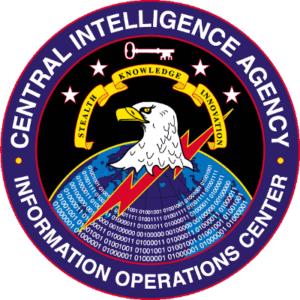 Wikileaks
Wikileaks A Central Intelligence Agency logotype released by Wikileaks as part of Vault7.
Two of the defining calculator security events of 2017 were leaks that exposed closely held hacking secrets of the U.S. government. Wikileaks got the ball rolling in March with the release of its so-called "Vault7" leaks revealing what appeared to be a memory cache of computer vulnerabilities and operational methods used by the Central Intelligence service to infiltrate target devices.
Then in April the Phantasm Brokers—an anonymous chemical group of hackers that first came to notoriety in 2016—released a trove of attack tools linked to the National Security measures Agency.
Both releases would have prodigious impacts on computer device security.
Equifax Break
"Chew out-dropping" does not begin to describe the Equifax breach, which came to floaty in September. Equifax is one of the three senior consumer deferred payment reporting agencies in the United States. The hackers struck in the fountain, grasping 143 million Gregarious Security numbers—that's more than half of the U.S. universe. A failure to install current protection patches on its network gaping the door to the attack, the society said. Contempt the devastating hack Equifax quiet won an anti-fake contract from the Intramural Revenue Service, though information technology was later suspended.
ISP tracking rules
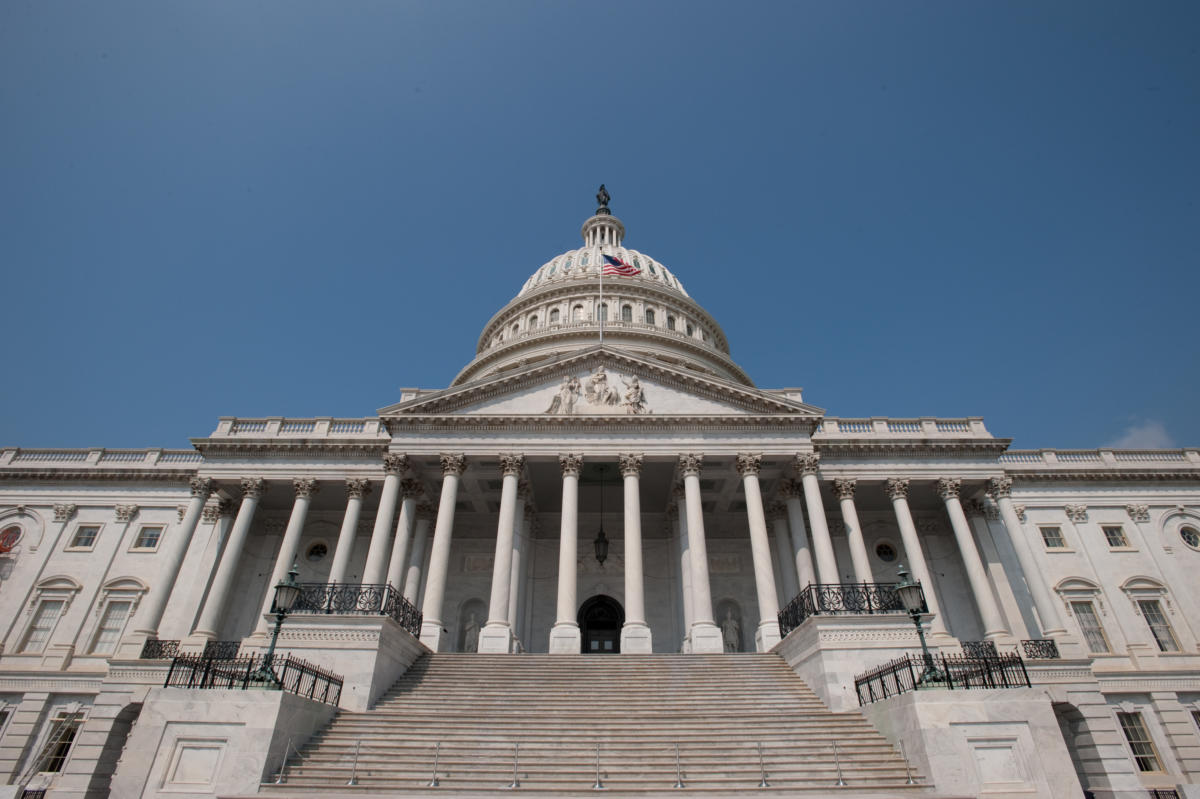 Bill Koplitz/FEMA
Bill Koplitz/FEMA In late March, Congress decided to remove the privacy rules passed by the Federal official Communications Commission in 2016. The rules had non yet inherit impression when they were dumped, but they would have required opt-in permission from broadband customers before ISPs could apply their personal information and browsing habits for marketing or analytics purposes.
Republicans said the rules unfairly hamstrung Internet Service Providers, piece major Internet companies could accumulate and use all the personal data they wanted. What that argument ignores, however, is that ISP data assemblage is much harder to palliate since information technology controls the very wires and cables you need to get online. Plus, few people are particularly pleased that Facebook and Google hold free reign, either.
CCleaner gets a back door
In September, security researches at Coregonus artedi Talos discovered malicious code belowground interior CCleaner, a popular Windows PC utility. The malware was studied to steal personal data from infected machines. Avast added to the scheme when it discovered that there was a second stage to the malware for infected machines in specific companies such as Cisco, Sony, and HTC. Presumably, the malware was looking to steal company secrets in those organizations. Tout ensemble around 2 million people were believed to be affected by the corrupted versions of CCleaner. The malware has since been removed from the latest versions of the software.
[ Promote reading: The best antivirus for Windows PCs ]
Kaspersky controversy
 David Orban via Flickr
David Orban via Flickr If there's a newspaper headline-grabbing computer security controversy of 2017, it has to make up the allegement that Kasperksy Anti-virus products are a catching instrument for Russian intelligence. In October, The Wall Street Journal said hackers functional for the Russian government used Kaspersky Anti-Computer virus to identify and target a NSA contractor in order to buy American hacking secrets.
Kaspersky smartly denied the claims and said the contractor caused the leak aside running Kasperksy connected a home political machine that contained weaponized malware. To assist ease fears, Kaspersky proclaimed information technology would allow third-parties to audit its code—a measure that whatsoever experts argue doesn't go deep enough. As a result of the reports, and bans of Kaspersky products by the government activity, Kaspersky's Washington District of Columbia authority shut down in December, the contractile organ WHO brought U.S. hacking secrets home in the first place plead guilty to taking top-secret documents, and Kaspersky sued the Department of Homeland Certificate over blacklisting its products.
Game of Leaks
It's non easy being a fount of popular TV shows—especially when everyone wants to lie with what you give birth aforethought. HBO found that out the tight way in July when hackers claimed to have stolen 1.5 terabytes of data from the pay TV television channel. Among the stolen cache were management emails, upcoming episodes for popular HBO shows, and draft scripts of unrivaled Game of Thrones episode that had not yet been aired. In November, U.S. law enforcement charged an Irani hacker with the data theft. As for HBO, straightaway information technology understands that when it comes to computer protection you win or you leak.
Chawbacon's 2016 hacks gets worse
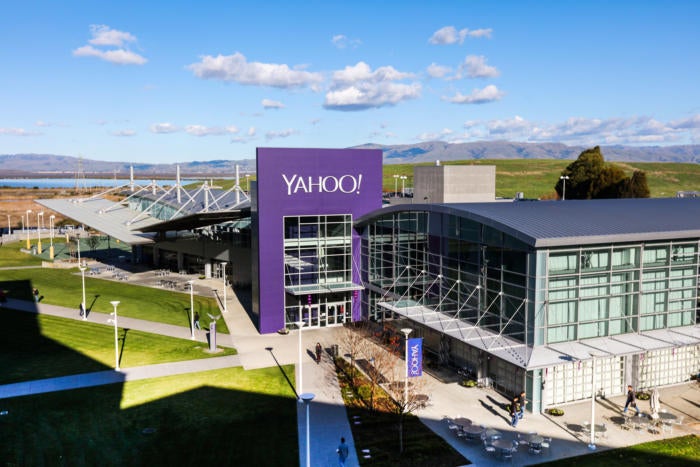 Rube
Rube Yahoo's military headquarters in Sunnyvale, Calif..
Oh son. Before Yahoo was absorbed into Verizon the Internet giant endured a large hack exposing usernames and passwords. In fact, it was a best hack doubly over in 2016, just eventide that wasn't the end of the saga.
The company late amended the number of Yahoo accounts affected by the information breach geological dating from 2013. By the conclusion of 2016, that number was believed to live one billion accounts, but in October Hayseed updated that number to leash one million million. Basically, if you had a Yahoo account at whatever prison term in 2013, your username and password leaked, once again driving home the importance of using unique passwords for every website.
[ Further reading: The best password managers ]
Ransomware makes you WannaCry
 Malwarebytes
Malwarebytes In May, a piece of ransomware called WannaCry made a second visual aspect after first rearing its head in March. The May attacks were Thomas More problematical since WannaCry included a "insect-like component" that helped spread the malware.
That component was in particular notable since it was derived from an feat called EternalBlue that was part of the ShadowBrokers leaks in April. The WannaCry onslaught was so successful because the EternalBlue exploit had either not been patched in a timely manner on infected machines, or the machines were too outdated to receive exploit patches. The WannaCry transmission was soh pernicious that Microsoft released patches for Windows XP, Windows Server 2013, and Windows 8. The ransomware was finally halted in May when Island security system researcher Marcus Robert Maynard Hutchins inadvertently discovered a kill replacement for the malware.
EternalBlue would also appear in NotPetya, another piece of notable ransomware that grabbed headlines in 2017.
[ Further interpretation: How to rescue your PC from ransomware ]
Cloudbleed
 Cloudflare
Cloudflare Cognitive content Livery Electronic network Cloudflare ended up with a of import bug in Feburary 2017 that affected the direction the fellowship parsed HTML. The company often takes regular HTTP webpages from its client websites and turns them into the more secure HTTPS pages. The parser can also bear unsuccessful tasks such as concealment content from bots, hiding email addresses, and impermanent with Google's A system.
But the parser system too had a flaw that could potentially leak sensitive information many of which was cached by search engines so much as Bing and Google. That irritable entropy included items like private messages from dating sites, textual matter chats from popular messaging services, password manager data, and hotel bookings.
While the technical causes were different, the results of the Cloud Flare bug were similar to the Heartbleed bug from 2014.
Voters exposed
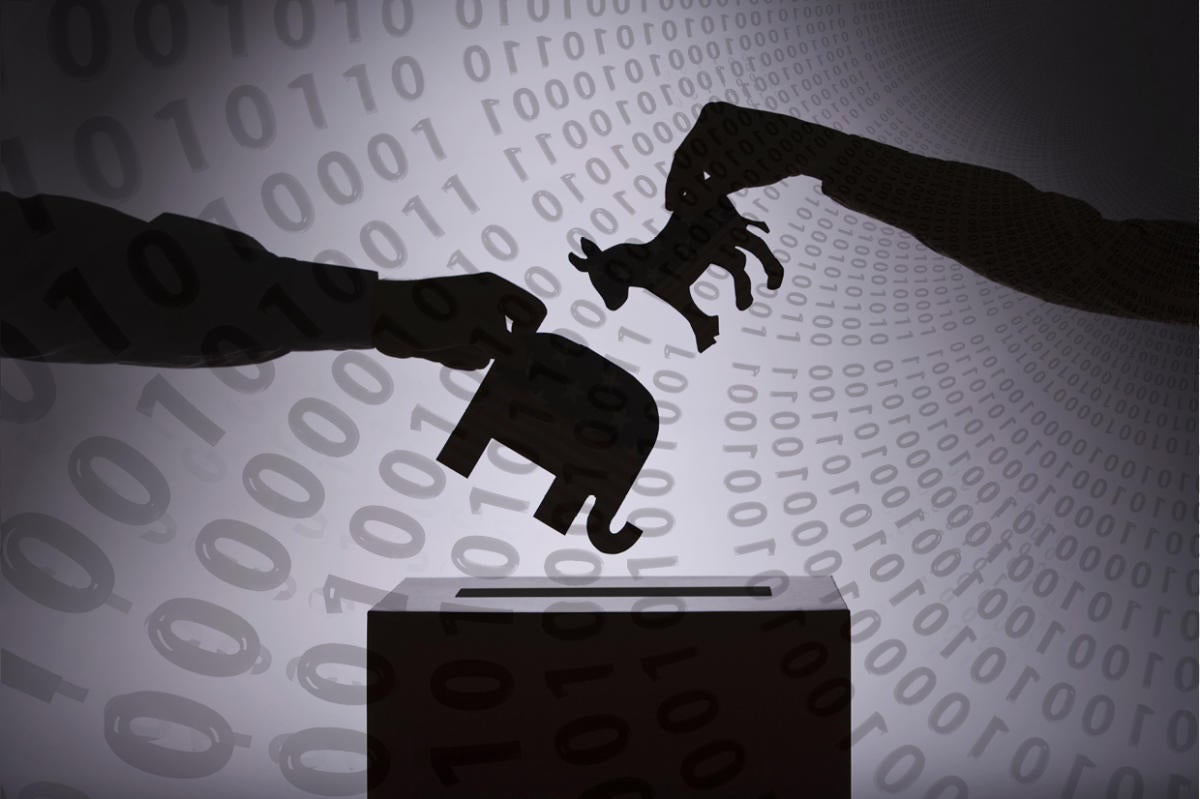 Thinkstock
Thinkstock Servers are guileful things. Non only do they have to be spotty to keep the bad guys out, but you too have to be elaborated of misconfigurations that expose closed-door information.
A data firm titled Deep Radical Analytics recovered that exterior in June when one of its Amazon S3 servers was misconfigured and exposed the personal information for 198 million voters, according to Wired. The misconfigured server was discovered aside a security analyst, and presumably the data never fell into malicious hands. Even if IT had, the risk might sustain been minimal. Wired noted in a follow-up study that most of the personal data exposed in the flaw could also be accessed from national records.
HP laptops with keyloggers
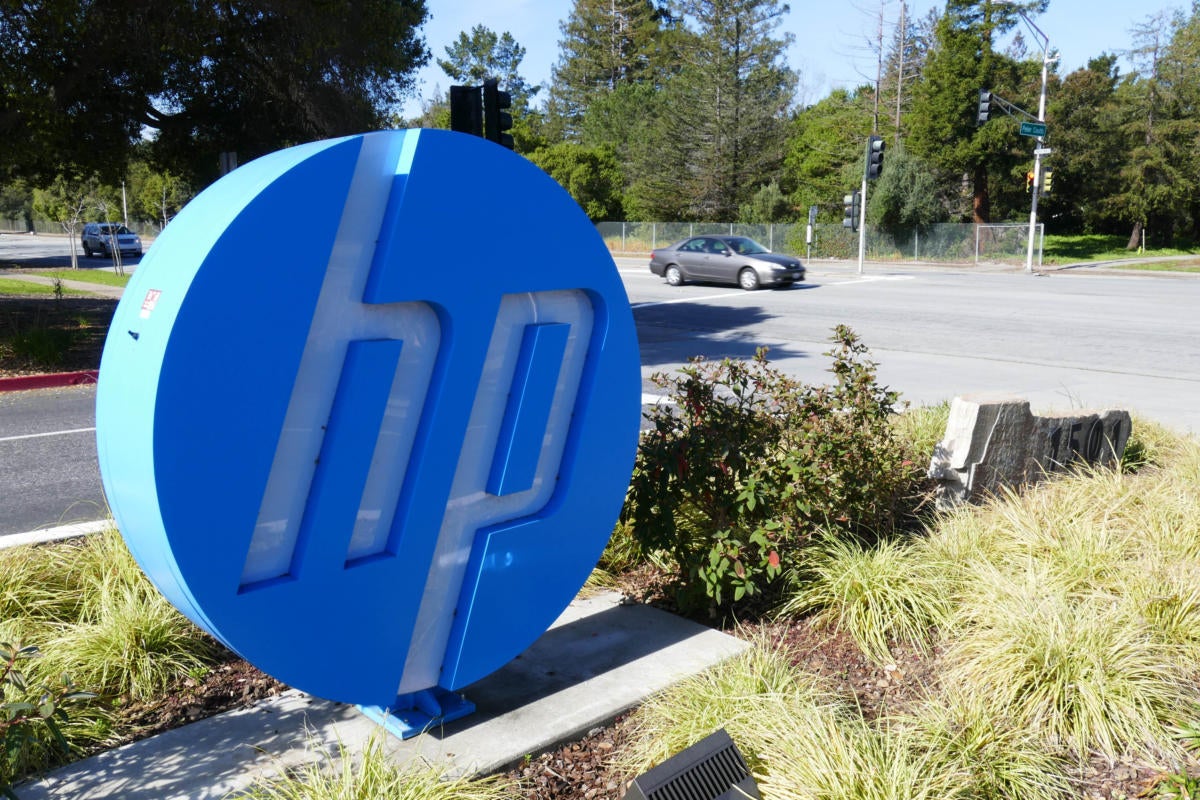 Magdalena River Petrova
Magdalena River Petrova For H.P., 2017 was the year of the keylogger. It whol started in May when a Swiss security tauten disclosed that more than XXIV "HP laptop models were recording users' keystrokes." The keylogging software was in the PC's audio driver existing since at any rate 2015. The driver was supposed to be alerted when a particular key on the PC was hit, but to do that the driver was capturing complete keystrokes. Those keystrokes were also stored in an unencrypted register. Potentially exposing passwords, usernames, and private correspondence should the substance abuser get hacked.
To a greater extent latterly in December, another surety researcher plant a keylogger in the Synaptics touchpad driver for nearly 500 models of HP notebooks going punt to 2012. Fortunately, the December keylogger was handicapped by default, and in both cases the installation of the keylogger appeared to be either inadvertent or a mistake.
Big businessman outage Ukraine
In January 2017, security researchers concluded that hackers caused a mightiness outage in Ukraine during December 2016—one of the country's coldest months. This was the second time a 'cyber attack' had triggered a power outage in the country.
Might outage hacks sound scary and bring up the obvious enquiry of whether they could happen in the U.S. The answer to that is yes, it could. In point of fact, attacks against Dry land infrastructure own already happened. In mid-December, Reuters according that hackers had broken into the safety arrangement of an unnamed "caviling base facility." Earlier that, in September, Symantec warned that foreign hackers were actively targeting European and American energy facilities, and is some cases had useable access, American Samoa rumored by Reuters. And oh, yea, hackers are also targeting American nuclear facilities.
Happy New Twelvemonth!
Note: When you purchase something after clicking links in our articles, we may earn a elflike deputation. Read our affiliate colligate insurance policy for more details.
Ian is an independent writer based in Israel who has never met a tech subject he didn't care. He primarily covers Windows, PC and play computer hardware, video and music streaming services, social networks, and browsers. When he's non covering the news atomic number 2's practical on how-to tips for PC users, operating room tuning his eGPU apparatus.
Source: https://www.pcworld.com/article/407733/biggest-hacks-security-breaches-2017.html
Posted by: shieldsdinen1964.blogspot.com


0 Response to "The 12 biggest hacks, breaches, and security threats of 2022 - shieldsdinen1964"
Post a Comment